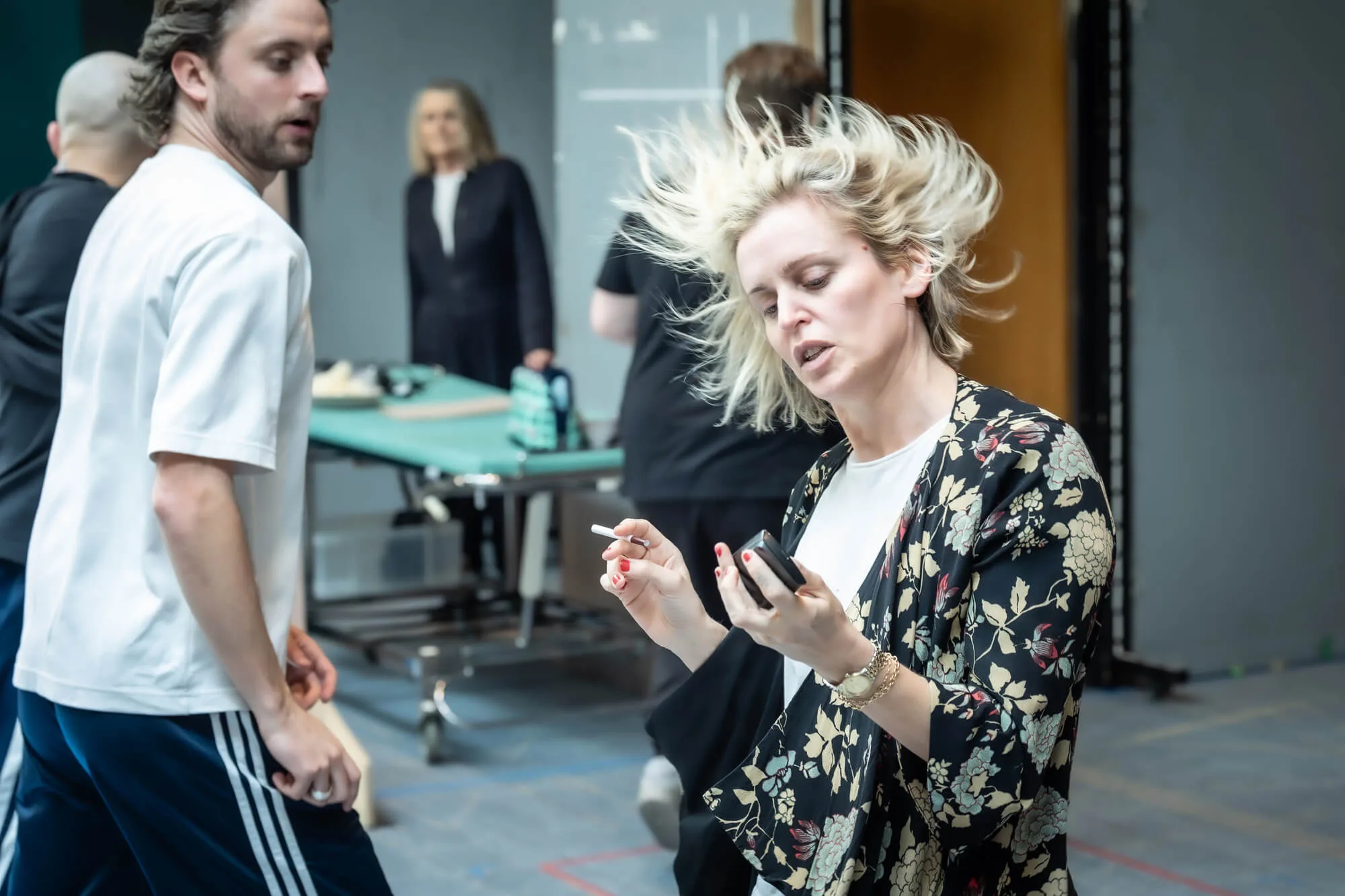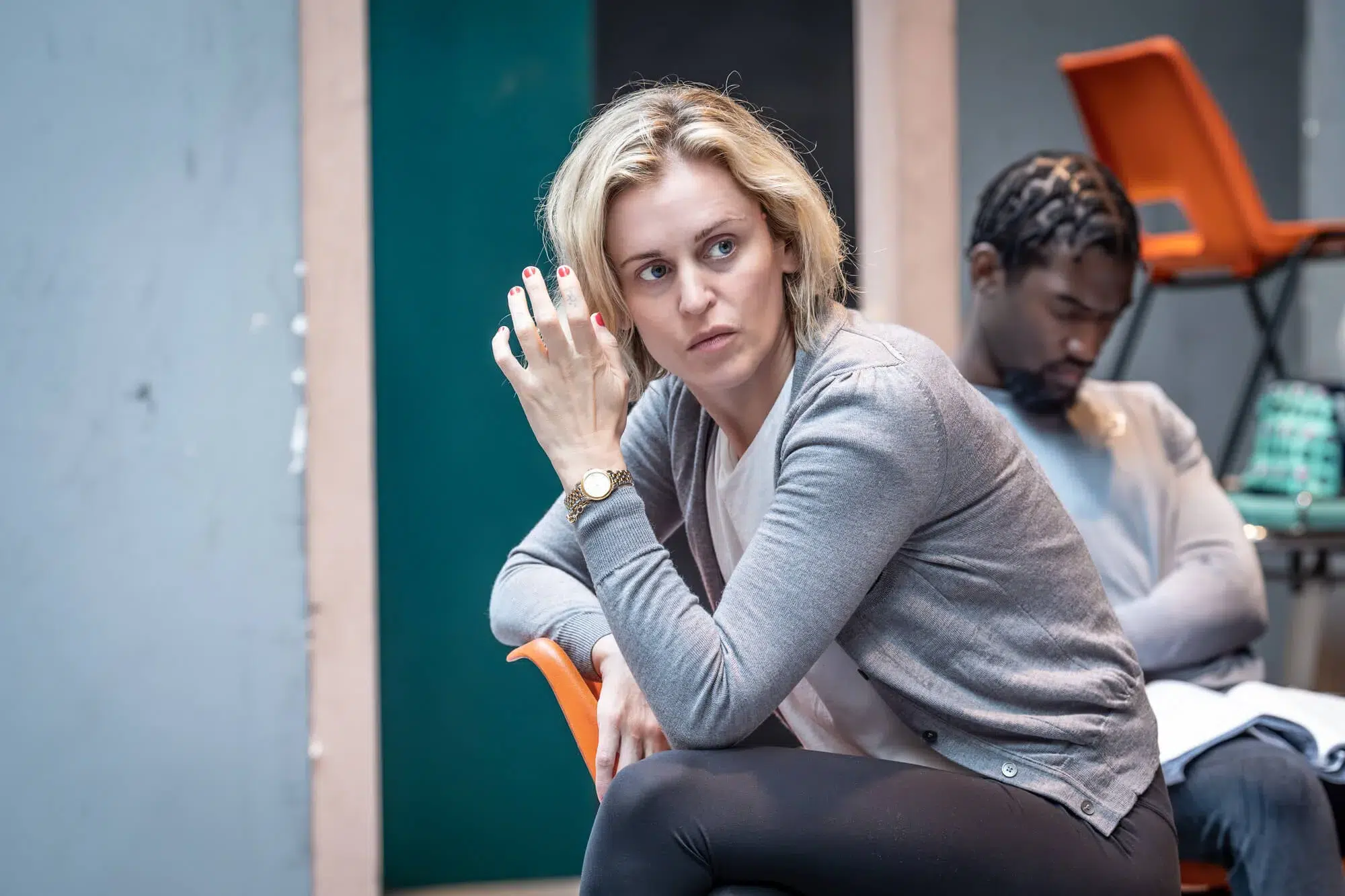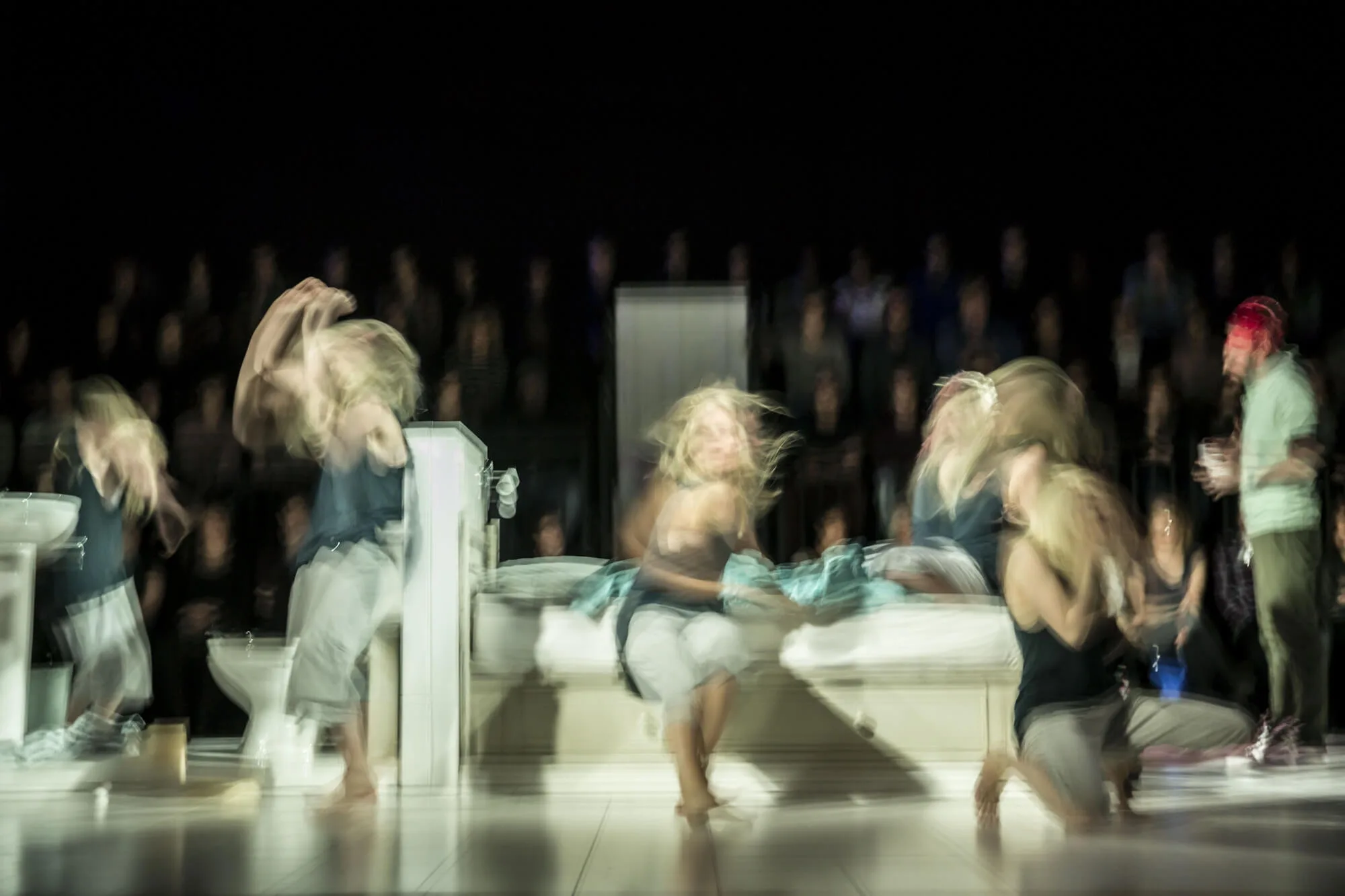When Denise Gough first played Emma, the addict and actor in the midst of a nervous breakdown in Duncan Macmillan’s People, Places, & Things, she described it as the role of a lifetime. “It completely and utterly changed the landscape of my career,” she said at the time.

Almost ten years later, after concentrating on high-profile screen work such as the crime drama Paula and the Star Wars prequel Andor, she can’t wait to be back on stage, once again playing the role that won her the Olivier award for Best Actress in 2016. “I love the fact that she is absolutely in her humanity,” she says. “She’s desperately ugly at times, completely vile, incredibly funny, very sexy, strong, weak, fearful, fearless, all of the stuff that we are. And she’s a woman. That never happens.”
This is just as playwright Macmillan intended. “I really wanted to write a big, barnstorming central part for an actress and had this instinct that if I wrote a good enough part, we’d find someone really special. And we found one of the greatest actresses of our generation in Denise.”

The play, directed with dizzying complexity and energy by Jeremy Herrin, met with rapturous acclaim when it opened at the National Theatre, before transferring to the West End and then to St Ann’s Warehouse in New York. It has only gained in relevance since it was last seen in 2017. “It’s very much about how you survive in the modern world without letting anxiety crush you,” Macmillan says. “Sadly, the central issues of the play haven’t been resolved in the time since we’ve been offstage.”
Audiences responded to the way in which People, Places & Things treats addiction as partially an understandable response to the engulfing chaos of life. As Emma grapples with rehab and group therapy, the audience – in Bunny Christie’s dazzlingly clever design – watches on from both sides of the action, intimately part of her struggle, which is at once funny and desperately sad.

Ticket sales for the limited season, which begins on 3 May, are already high. “There’s a hunger from people to see it again,” says Macmillan. “So many people didn’t get a chance to see it last time around, and so many people are booking again, having seen it several times. Especially since Covid, I have realised how important it is that we have these collective spaces where we come together as a group of strangers and feel something together.”







